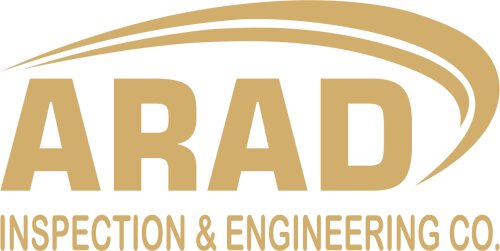Best Oil, Gas & Energy Lawyers in Tabriz
Share your needs with us, get contacted by law firms.
Free. Takes 2 min.
List of the best lawyers in Tabriz, Iran
About Oil, Gas & Energy Law in Tabriz, Iran
Tabriz, located in the northwestern part of Iran, is an industrial and commercial hub with significant involvement in the oil, gas, and energy sectors. Iran, being one of the largest producers and exporters of oil and natural gas, plays a critical role in these industries. Tabriz hosts a range of operations, from exploration and extraction to refining and distribution. The legal foundation for activities in the oil, gas, and energy sectors is shaped by a combination of national legislation, local regulations, and various international agreements. Hence, understanding the legal landscape is crucial for stakeholders operating in Tabriz.
Why You May Need a Lawyer
Individuals and companies may require legal assistance in the oil, gas, and energy sectors in various scenarios:
- Negotiating contracts and agreements with suppliers, distributors, and government entities.
- Ensuring compliance with environmental regulations and safety standards.
- Resolving disputes, such as those related to property rights and contract breaches.
- Handling taxation and financial regulatory challenges specific to the energy sector.
- Advising on joint ventures and partnerships with domestic and international parties.
Local Laws Overview
The legal environment in Tabriz for the oil, gas, and energy industry is shaped by several important aspects:
- Oil and Gas Legislation: Governed largely by national laws, such as the Petroleum Act and various regulations put forward by the Ministry of Petroleum.
- Environmental Regulations: Companies must adhere to environmental standards set by the Department of Environment, focusing on reducing the ecological impact of energy operations.
- Labor Laws: Govern employment contracts, working conditions, and workers' rights, which are critical for energy sector operations.
- Investment Regulations: Foreign and domestic investments in the energy sector are regulated to align with national security and economic objectives.
Frequently Asked Questions
What are the main regulatory bodies governing the oil and gas industry in Tabriz?
The main regulatory bodies include the Ministry of Petroleum, the National Iranian Oil Company (NIOC), and the Department of Environment.
Are there specific laws regulating renewable energy in Tabriz?
Yes, Iran has a legal framework promoting renewable energy initiatives, including incentives for solar, wind, and biomass projects, overseen by authorities such as the Renewable Energy Organization of Iran (SUNA).
How are foreign investments in the energy sector regulated?
Foreign investments are regulated under the Foreign Investment Promotion and Protection Act (FIPPA), which provides guidelines and protections for foreign investors.
What kind of environmental permits are required for energy projects?
Projects may require Environmental Impact Assessments (EIA) and specific operational permits from the Department of Environment.
What roles does local government play in energy regulation?
Local governments are involved in issuing specific permits and ensuring compliance with regional environmental and infrastructural regulations.
How can disputes in the energy sector be resolved?
Disputes can be resolved through negotiation, arbitration, or litigation, with many agreements including specific dispute resolution clauses.
Can energy contracts be freely negotiated?
While contracts can often be freely negotiated, they must comply with national laws and be approved by relevant governmental authorities.
What taxes apply to energy activities in Tabriz?
Taxes include corporate tax, VAT, and specific duties related to environmental impact and resource extraction.
How are workers’ rights protected in the energy industry?
Workers' rights are protected under national labor laws, which cover safety standards, wages, and working conditions.
What are the penalties for non-compliance with energy regulations?
Penalties can include fines, operational shutdowns, and legal actions, depending on the severity and nature of the violation.
Additional Resources
For additional information and guidance, you may consider reaching out to the following organizations:
- Ministry of Petroleum
- National Iranian Oil Company (NIOC)
- Department of Environment
- Tabriz Chamber of Commerce, Industries, Mines, and Agriculture
- Renewable Energy Organization of Iran (SUNA)
Next Steps
If you are seeking legal assistance in the oil, gas, and energy sector in Tabriz, consider the following steps:
- Identify the specific area of legal assistance you need, such as contract negotiation or compliance.
- Consult with a lawyer specializing in energy law; they can provide tailored advice and representation.
- Contact local regulatory bodies for current guidelines and regulatory requirements.
- Engage with industry associations to network and gather insights from other industry players.
With the right legal guidance, navigating the complex legal landscape in the oil, gas, and energy sectors in Tabriz can become significantly more manageable.
Lawzana helps you find the best lawyers and law firms in Tabriz through a curated and pre-screened list of qualified legal professionals. Our platform offers rankings and detailed profiles of attorneys and law firms, allowing you to compare based on practice areas, including Oil, Gas & Energy, experience, and client feedback.
Each profile includes a description of the firm's areas of practice, client reviews, team members and partners, year of establishment, spoken languages, office locations, contact information, social media presence, and any published articles or resources. Most firms on our platform speak English and are experienced in both local and international legal matters.
Get a quote from top-rated law firms in Tabriz, Iran — quickly, securely, and without unnecessary hassle.
Disclaimer:
The information provided on this page is for general informational purposes only and does not constitute legal advice. While we strive to ensure the accuracy and relevance of the content, legal information may change over time, and interpretations of the law can vary. You should always consult with a qualified legal professional for advice specific to your situation.
We disclaim all liability for actions taken or not taken based on the content of this page. If you believe any information is incorrect or outdated, please contact us, and we will review and update it where appropriate.








